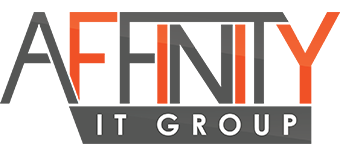A quick guide to IT support for your business
Every SMB owner needs a complete IT strategy to support their growing business. The best IT support options are flexible enough to grow with your business, and they improve efficiency levels – but how do you know which ones are right for you? Here’s a rundown of why IT support is so essential to your business and our pick of the most popular options.
Why IT support is necessary for growing businesses
An efficient IT system is essential for businesses to achieve their company objectives. As a business grows, IT support ensures network performance, productivity and security:
- Systems are protected against the latest
cyberthreats - There’s sufficient storage available, whether in the cloud or elsewhere
- Networks and infrastructure can keep up with the business’s needs and growth
- Software and tools remain current and relevant
- End-user devices, such as mobile phones, printers, and laptops, are compatible, functional and effective within the network
- Your business has a backup plan for when things go wrong
When it comes to choosing IT support, the two main options are employing an in-house IT specialist and outsourcing your IT management. What’s the difference between in-house and outsourced IT services, and how can you decide what’s best for your business?
In-house IT support
Some businesses prefer to keep their IT support in-house. This might mean appointing at least one employee to act as the IT support manager, either as their primary role or in addition to other responsibilities, depending on the size of your organization. In-house IT works for some businesses, but it’s not for everyone.
Advantages
- Available to your team for immediate assistance
- Focused only on your business
- Has a unique “insider” understanding of the business operations, challenges and culture of your company
Disadvantages
- After-hours IT problems may incur overtime, if available
- A staff member may not have enough time or experience to provide all necessary IT support
- Difficult to track results and identify potential issues
- Focused on break-fix issues so unable to be proactive
In-house IT supportworks best for small businesses who only employ a handful of staff, have enough expertise to cover basic network issues, and don’t anticipate expanding their services.
Our top tips:
- Use professional recruitment services to hire a specialist you can trust
- Decide and communicate how you will cover out-of-hours issues
- Clearly define the specialist’s role and what you need from them
Managed IT support (outsourced)
With a managed IT
Advantages
- Gaining a team of specialists with current knowledge and experience
- Lower associated costs (e.g., no overheads)
- Freeing up staff time for other projects
- Increasing business productivity and efficiency
- Delivering a standard service level and reporting
- Flexible options suit most budgets and support requirements
Disadvantages
- Doesn’t work in-house or with your staff every day
- Sharing support resources with other organizations
- Takes time to find a provider that’s a good fit andbuild a relationship with them
- Adding cost to the budget for an outside resource
Our top tips
- Look for a provider who understands your business
- Choose a provider who offers a customized service program tailored to your business
- Check out client testimonials
- Choose a provider in your time zone if quick communication is your priority
What’s right for your business?
There’s no one-size-fits-all strategy for choosing a business IT strategy. It all comes down to your needs, your available resources, and your short- and long-term business goals.
However, managed IT service providers are generally suitable for all business sizes and models because they offer all the benefits of an in-house IT support team without the associated costs. If you want guidance on what IT strategy would work best for you, feel free to reach out to us today.











